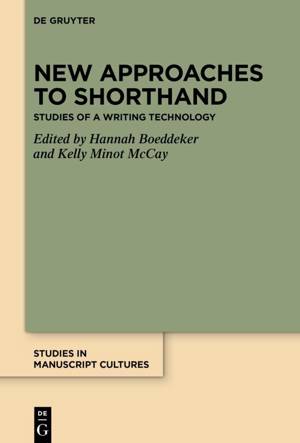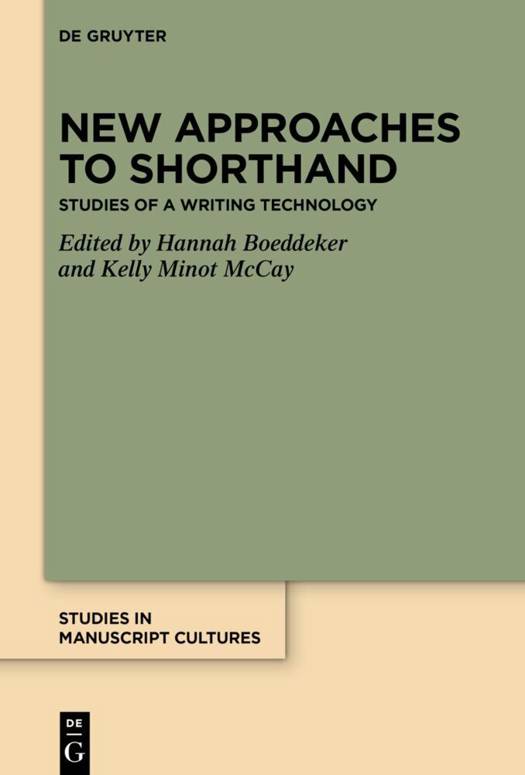
- Afhalen na 1 uur in een winkel met voorraad
- In januari gratis thuislevering in België
- Ruim aanbod met 7 miljoen producten
- Afhalen na 1 uur in een winkel met voorraad
- In januari gratis thuislevering in België
- Ruim aanbod met 7 miljoen producten
New Approaches to Shorthand
Studies of a Writing Technology
Omschrijving
Variously identified as an art, a technology, and a professional prerequisite, forms of shorthand have been in use from Antiquity to the modern day. Far from a niche corner in manuscript studies, shorthand represents an almost global phenomenon that has touched upon many aspects of everyday life and of scholarship. Due to its immediate illegibility, however, and the daunting task of decipherment, shorthand has long been neglected as a research object in its own right. The immense quantity of extant and unread shorthand manuscripts has been downplayed, as has the technology's place in cultures of learning, religious devotion, court practice, parliamentary procedure, authorial composition, corporate life, public and private writing, and the academy. As the first ever peer-reviewed volume on the subject, this book presents a much-needed introduction to shorthand, its history, and its disparate historiography, alongside eight contributions by shorthand specialists that showcase some of the many lines of inquiry that shorthand inspires across a range of disciplinary and methodological perspectives. For readers with a vested interest in shorthand, this volume provides a range of approaches to shorthand in the Latin West, from the Middle Ages to the nineteenth century, upon which to orient, substantiate, and inform their own work. For general readers, this publication invites scholars to consider ways in which historically overlooked or underestimated forms of writing facilitated a variety of writing cultures in different contexts, periods, and languages.
Specificaties
Betrokkenen
- Uitgeverij:
Inhoud
- Aantal bladzijden:
- 288
- Taal:
- Engels
- Reeks:
- Reeksnummer:
- nr. 41
Eigenschappen
- Productcode (EAN):
- 9783111382333
- Verschijningsdatum:
- 7/10/2024
- Uitvoering:
- Hardcover
- Formaat:
- Genaaid
- Afmetingen:
- 156 mm x 234 mm
- Gewicht:
- 580 g

Alleen bij Standaard Boekhandel
Beoordelingen
We publiceren alleen reviews die voldoen aan de voorwaarden voor reviews. Bekijk onze voorwaarden voor reviews.








